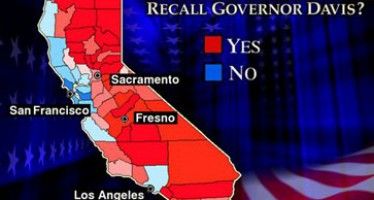UCLA studies add up to grim picture of CA housing costs
 California’s politicians have finally made dealing with the state’s worst-in-the-nation poverty rate a priority. Efforts to increase the minimum wage and to increase affordable housing are being championed in the Legislature and in most of the Golden State’s larger cities. But two new UCLA studies raise thorny questions about whether sky-high housing costs in California can be restrained any time soon — or ever, given the many obstacles.
California’s politicians have finally made dealing with the state’s worst-in-the-nation poverty rate a priority. Efforts to increase the minimum wage and to increase affordable housing are being championed in the Legislature and in most of the Golden State’s larger cities. But two new UCLA studies raise thorny questions about whether sky-high housing costs in California can be restrained any time soon — or ever, given the many obstacles.
One of the studies — by author David Shulman, a senior economist with the UCLA Anderson Forecast project — notes that California is at the start of a relative boom in construction of housing units:
After a long, hard slog, housing starts (both single- and multi-family) are poised to approach the long-term average (1959-2014) of just under 1.5 million units in 2016. Specifically we are forecasting housing starts of 1.14 million units this year and 1.42 million units and 1.44 million units in 2016 and 2017, respectively. This level of activity is well above 1.00 million units recorded in 2014 and the 2009 low of 0.55 million units.
This would seem to be unalloyed good news. Critics of the standard local government affordable-housing practice of building a relative handful of units say that such policies can never produce enough housing stock to make rents and sale prices go down. So a sharp increase in building would seem to move us toward a place where supply and demand affects costs.
More housing stock — but also much more demand
But another UCLA study says that’s a fantasy, as the rebounding California economy pushes more potential buyers into the market. This is from a City News Service story about UCLA’s research in the Los Angeles Daily News:
Housing in California — already considered unaffordable to many — will become even less affordable over the next two years, with construction unable to keep up with demand, according to a UCLA economic forecast released Monday.
UCLA Anderson Forecast Senior Economist Jerry Nickelsburg wrote in his forecast that government agencies need to reconsider their policies surrounding affordable housing if they hope to make a dent in the problem.
“The economics are clear,” he wrote. “When affordable housing is provided, say by requiring developers to have a fixed percentage of their new units ‘affordable,’ then the demand for that housing will be in excess of the supply.” …
Nickelsburg said the typical response of “just build more housing” is unrealistic since such a move would require major changes in zoning codes, environmental requirements and building regulations.
This has been the standard argument from many analysts. But Nickelsburg suggests a new approach that seems certain to be controversial, per the Daily News:
Nickelsburg added that “the policy itself recognizes that building constraints — natural or regulatory — will not permit a sufficient number of new homes to be built to satisfy the demand at affordable levels.
“This being the case, affordable housing policy needs to be explicit about who the housing is for,” he wrote. “For example, one might advocate affordable housing so that teachers in public schools can purchase housing that would otherwise be difficult for them to acquire.”
But teachers are not the face of poverty in California — it’s Latinos and African Americans without much education. Nearly 50 percent of these two groups are either in poverty or near poverty, according to a study by the United Way.
As of last year, the average pay of a full-teacher in California was more than $84,000, per data from Transparent California.
Chris Reed
Chris Reed is a regular contributor to Cal Watchdog. Reed is an editorial writer for U-T San Diego. Before joining the U-T in July 2005, he was the opinion-page columns editor and wrote the featured weekly Unspin column for The Orange County Register. Reed was on the national board of the Association of Opinion Page Editors from 2003-2005. From 2000 to 2005, Reed made more than 100 appearances as a featured news analyst on Los Angeles-area National Public Radio affiliate KPCC-FM. From 1990 to 1998, Reed was an editor, metro columnist and film critic at the Inland Valley Daily Bulletin in Ontario. Reed has a political science degree from the University of Hawaii (Hilo campus), where he edited the student newspaper, the Vulcan News, his senior year. He is on Twitter: @chrisreed99.
Related Articles
Jerry Brown’s ignorant — literally — views on school reform
Jan. 25, 2013 By Chris Reed Gov. Jerry Brown likes to dress up his speeches with quotes and literary references,
Why was 2003 recall so unique? Joe Mathews misses key point
Joe Mathews has written an interesting column about the 10th anniversary of the recall of Gov. Gray Davis. assignment online
"The Architect" Visits California
Katy Grimes: Saturday evening I met Karl Rove, often referred to as “The Architect,” by the media and political opponents.



